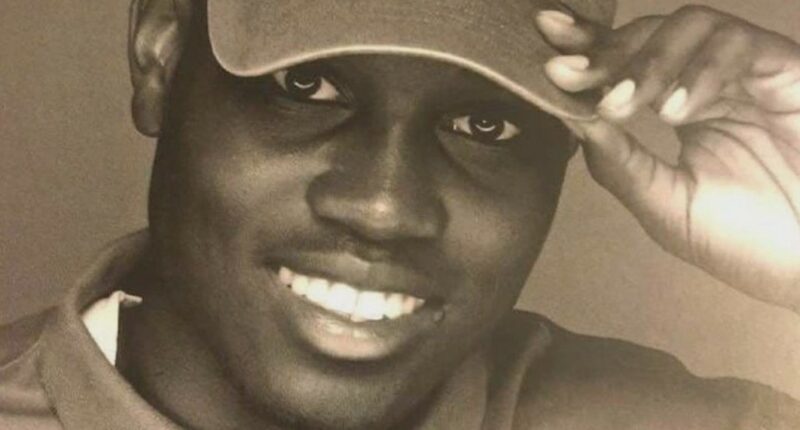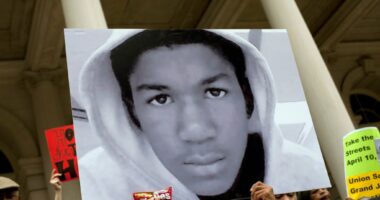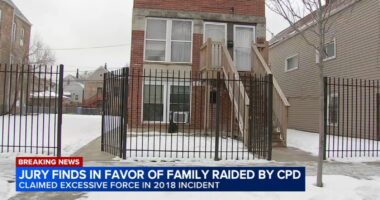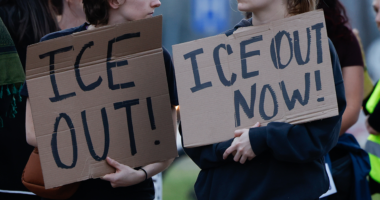Share this @internewscast.com
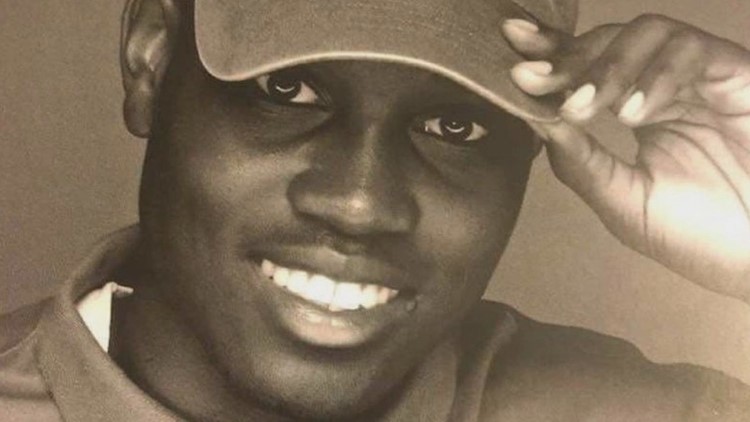
Judge Elizabeth L. Branch authored the appellate panel’s decision, noting that prosecutors demonstrated the defendants’ enduring bias.
In Savannah, Georgia, a federal appeals court reaffirmed the hate crime convictions of three white men who pursued Ahmaud Arbery, a Black man, with pickup trucks in their neighborhood before one fatally shot him with a shotgun.
The 11th U.S. Circuit Court of Appeals’ three-judge panel took more than a year to deliver their verdict. In March 2024, the defendants’ lawyers had asked for an overturn, claiming that past racist texts and social media posts did not prove racial motivation in the pursuit of Arbery.
Federal prosecutors in 2022 convinced a jury that racial animosity fueled the incident, leveraging those communications as evidence.
Judge Elizabeth L. Branch’s opinion stated that the prosecution effectively illustrated the defendants’ deep-seated prejudices, convincing jurors that Arbery’s race was the primary reason for the fatal chase.
Even if the panel had dismissed the hate crime convictions, the men would remain incarcerated, as they are also serving life sentences for murder following their state court conviction in Georgia.
Father and son Greg and Travis McMichael armed themselves and used a pickup truck to pursue 25-year-old Arbery after spotting him running in their neighborhood just outside the port city of Brunswick on Feb. 23, 2020. A neighbor, William “Roddie” Bryan, joined the chase and recorded cellphone video of Travis McMichael shooting Arbery at close range.
More than two months passed without arrests, until Bryan’s graphic video of the killing leaked online. The Georgia Bureau of Investigation took over the case from local police as outrage over Arbery’s death became part of a national outcry over racial injustice. Charges soon followed.
All three men were convicted of murder by a state court in late 2021. After a second trial in U.S. District Court in early 2022, a jury found the trio guilty of hate crimes and attempted kidnapping.
Greg McMichael’s attorney in the hate crimes case, A.J. Balbo, declined to comment on the appellate ruling. Attorneys for Bryan and Travis McMichael did not immediately return phone and email messages.
In their federal appeals, lawyers for Bryan and Greg McMichael criticized prosecutors’ use of more than two dozen social media posts and text messages, as well as witness testimony, that showed all three men using racist slurs or otherwise disparaging Black people.
Bryan’s attorney, Pete Theodocion, argued those statements were so repulsive that prosecutors were able to sway the jury without proving a racist intent to harm Arbery himself.
Balbo, Greg McMichael’s lawyer, insisted his client initiated the pursuit of Arbery because he mistakenly suspected him of being a fleeing criminal. The McMichaels had seen security camera videos in prior months that showed Arbery entering a neighboring home under construction.
The 11th Circuit judges rejected those arguments, noting there was no evidence Arbery had committed any crimes in the men’s neighborhood. He was unarmed and had no stolen property when he was killed.
In Travis McMichael’s appeal, attorney Amy Lee Copeland didn’t dispute the jury’s finding that he was motivated by racism. The social media evidence included a 2018 Facebook comment Travis McMichael made on a video of a Black man playing a prank on a white person. He used an expletive and a racial slur when writing he’d kill him.
Instead, Copeland based her appeal on legal technicalities. She said that prosecutors failed to prove the streets of the Satilla Shores subdivision where Arbery was killed were public roads, as stated in the indictment used to charge the men. The 11th Circuit rejected her argument.
The trial judge sentenced both McMichaels to life in prison for their hate crime convictions, plus additional time — 10 years for Travis McMichael and seven years for his father — for brandishing guns while committing violent crimes. Bryan received a lighter hate crime sentence of 35 years in prison, in part because he wasn’t armed and preserved the cellphone video that became crucial evidence.
